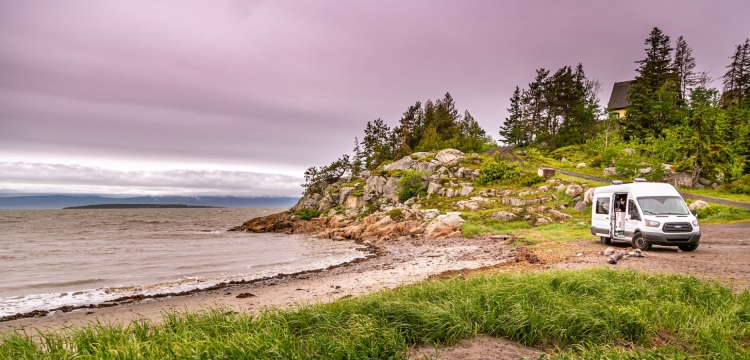7 Tips To Make Your Popup Camper Experience a Safe One

New and used pop-up campers provide a convenient way to enjoy the great outdoors without sacrificing the comforts of home. They are easy to tow, and their small size makes them convenient for campers. However, like any other recreational vehicle, pop-up campers require careful consideration and planning for a safe, relaxing, and stress-free experience.

Let’s take a look at some essential safety tips for pop-up trailers to help you make the most of your camping adventure while avoiding danger.
1. Regularly Inspect Your Pop-Up Trailer
Before setting off on your next expedition, conduct a thorough inspection of your pop-up trailer, especially if you’ve selected a pre-owned model. Look for signs of wear and tear, such as tears or cracks in the canvas, damaged cables, or loose nuts and bolts. Check the electrical and plumbing systems so you don’t experience failures while on the road. Conduct these checks well in advance and allow time for any necessary repairs to prevent unexpected issues during your camping trip.
2. Pick a Campsite for Pop-Up Campers
Select a campsite designed for a pop-up trailer. Look for level terrain to park your trailer, avoiding steep inclines or drop-offs. Ensure the area without overhanging branches, loose rocks, or sharp objects that could damage the trailer's canvas top and fragile windows.
3. Secure Your Camper
After parking your pop-up trailer, use leveling blocks, wheel chocks, or jacks to stabilize it. This prevents tipping or excessive swaying, ensuring a comfortable and secure camping experience. You don’t want your camper to roll away.
4. Follow Capacity Specifications
It's crucial to follow the weight and towing capacity limits specified by the manufacturer for your vehicle and camper. Overloading your trailer can strain its components and lead to costly damage. Use the properly functioning towing equipment like a weight-appropriate hitch that is professionally installed and attached to your braking system.

5. Use Propane Safely
Campers often rely on propane for heating, cooking, and refrigeration. Safe propane usage is essential to avoid fires. Turn off the propane tanks when you aren’t using them, and always keep them outside of the camper to prevent fires and smoke inhalation. Inspect the propane heaters and other devices between your camping trips to ensure they are working properly. Fortunately, camp stores carry extra propane tanks, so you don’t have to travel with extra fuel.
6. Be Safe Around Fire
Fire safety is paramount when camping. Keep a fully charged fire extinguisher in your camper or tow vehicle, and check that it is charged and ready to go. Do not cook inside your camper, use outdoor grills instead. If your camper has an indoor stove, do not leave the flames unattended, as the camper’s components are flammable.
7. Coexist with Wildlife
Outdoor camping often includes interactions with wildlife. Some wildlife can be dangerous, so stay aware of your surroundings and heed recommendations from the staff at campsites. Secure your food so animals and insects cannot get into it, and dispose of waste safely and appropriately.





